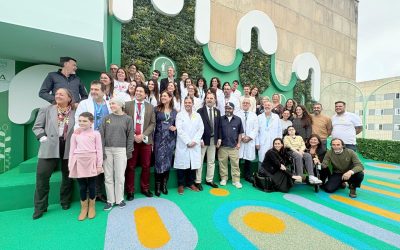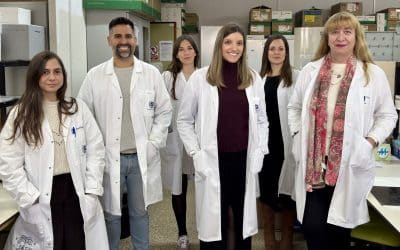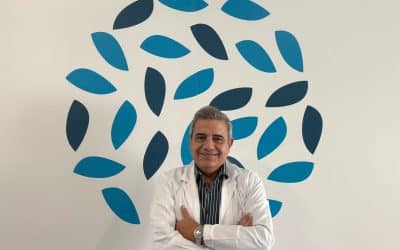Specifically, the Institute's Genomics Unit co-organised this first meeting in Madrid, which aims to become an annual event.
On 13 and 14 May, the first international conference ‘Genome Regulation & Cellular Fates in Homeostasis & Disease’ took place at the CaixaForum in Madrid, organised by the University of Cambridge, the LaCaixa Foundation, and with the support of IBIMA Plataforma BIONAND from Malaga and the company Relation Therapeutics from the United Kingdom. This event brought together more than 350 national and international participants, including academics, start-ups in the field of biotechnology and industry representatives in a multidisciplinary meeting that has been received with great interest, especially by the Spanish scientific community.
Genomic regulation, the study of how genes are controlled in our DNA, is fundamental to understanding the mechanisms underlying many diseases. This knowledge is crucial for developing new technologies that can improve the diagnosis, treatment and monitoring of diseases, significantly transforming public health and enabling the development of Precision Medicine.
Cancer Research Centre (CNIO), the Centre for Applied Medical Research (CIMA), a University Research Institute of the University of Navarra, and the Institute for Research in Biomedicine in Barcelona (IRB), as well as international experts from countries such as Israel, the United Kingdom and Germany, shared the latest advances in genome regulation in various diseases and normal biological processes. In addition, innovations in analytical methods and single-cell technology were discussed, underlining the importance of such platforms for scientific advancement and collaboration.
One of the highlights was a panel discussion that included figures such as Dr. Ido Amit, representatives of CaixaImpulse Innovation, startups such as the Spanish Vivet Therapeutics or internationals such as Relation Therapeutics (UK), where the need to empower scientists in the process of transferring their discoveries to industry and society was debated. The 55-poster exhibition also showcased the vibrant research activity and provided a forum for the presentation of innovative proposals.
The coordinator of the Genomics Unit of IBIMA Plataforma BIONAND, Daniel Alameda, said that ‘the participants expressed their satisfaction with the opportunity to exchange ideas and technologies, declaring the need for an event of these characteristics in Spain’. In this sense, Alameda stressed that ‘the overwhelming success and great reception of this congress suggest that this could be just the beginning of a series of future events’.



